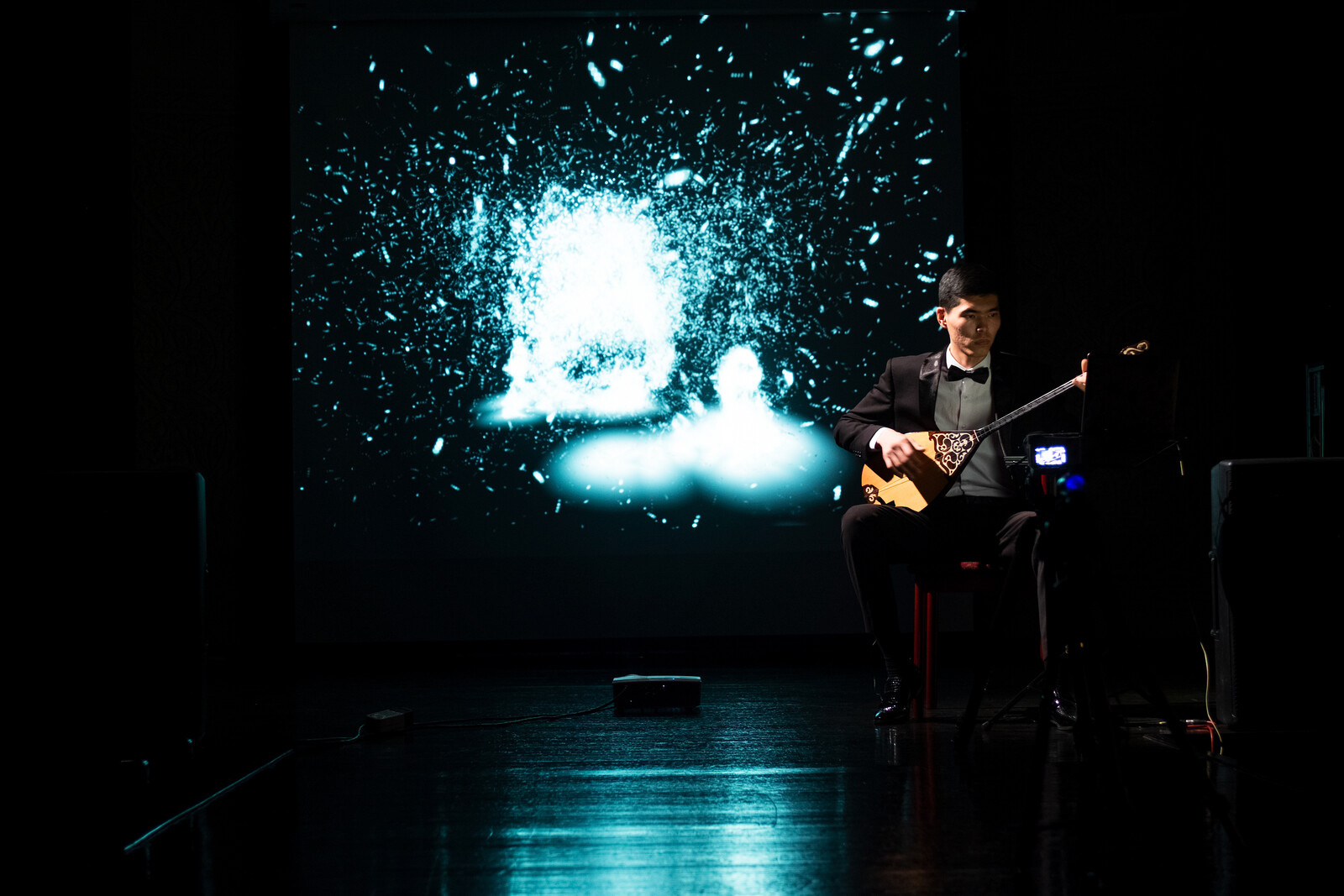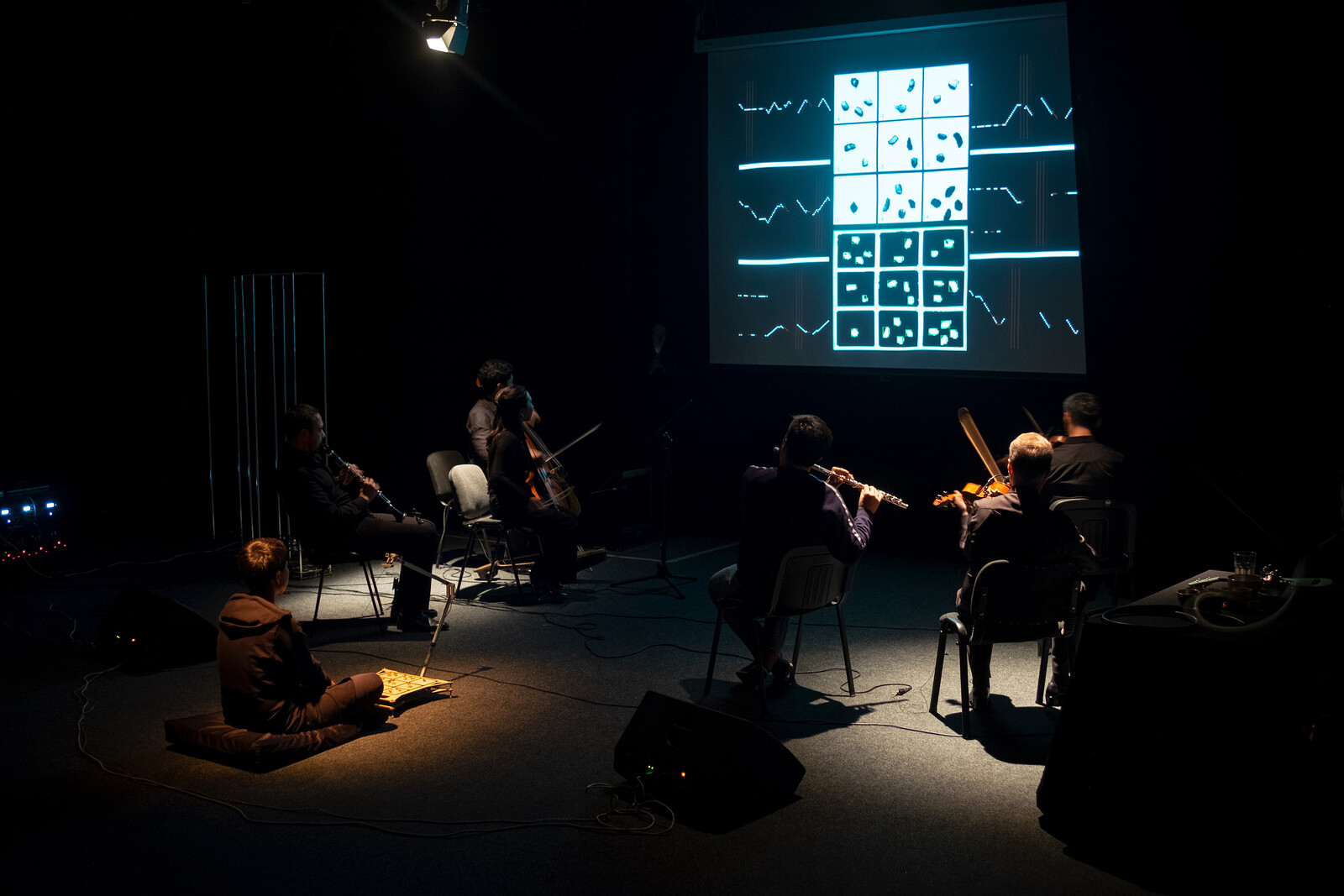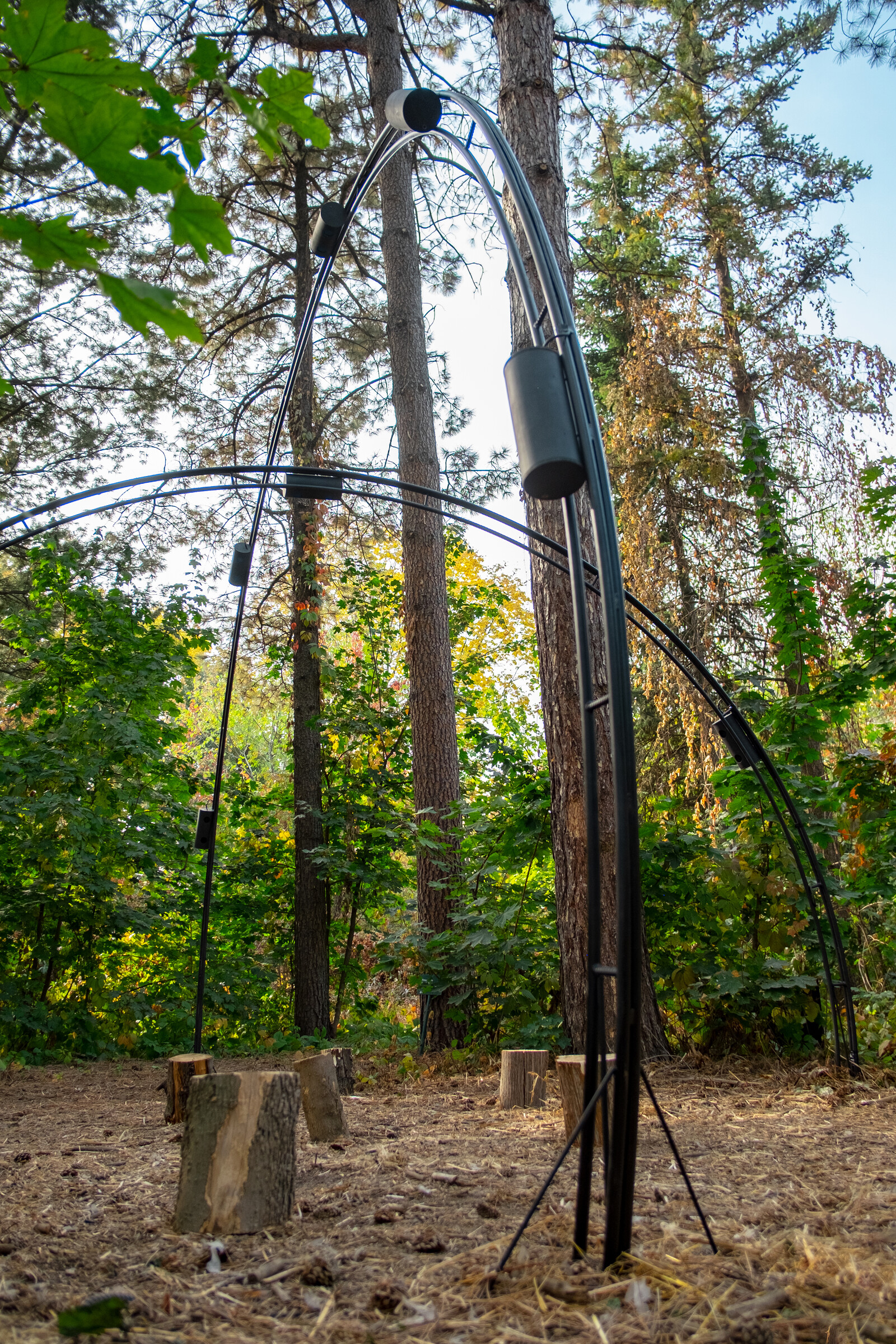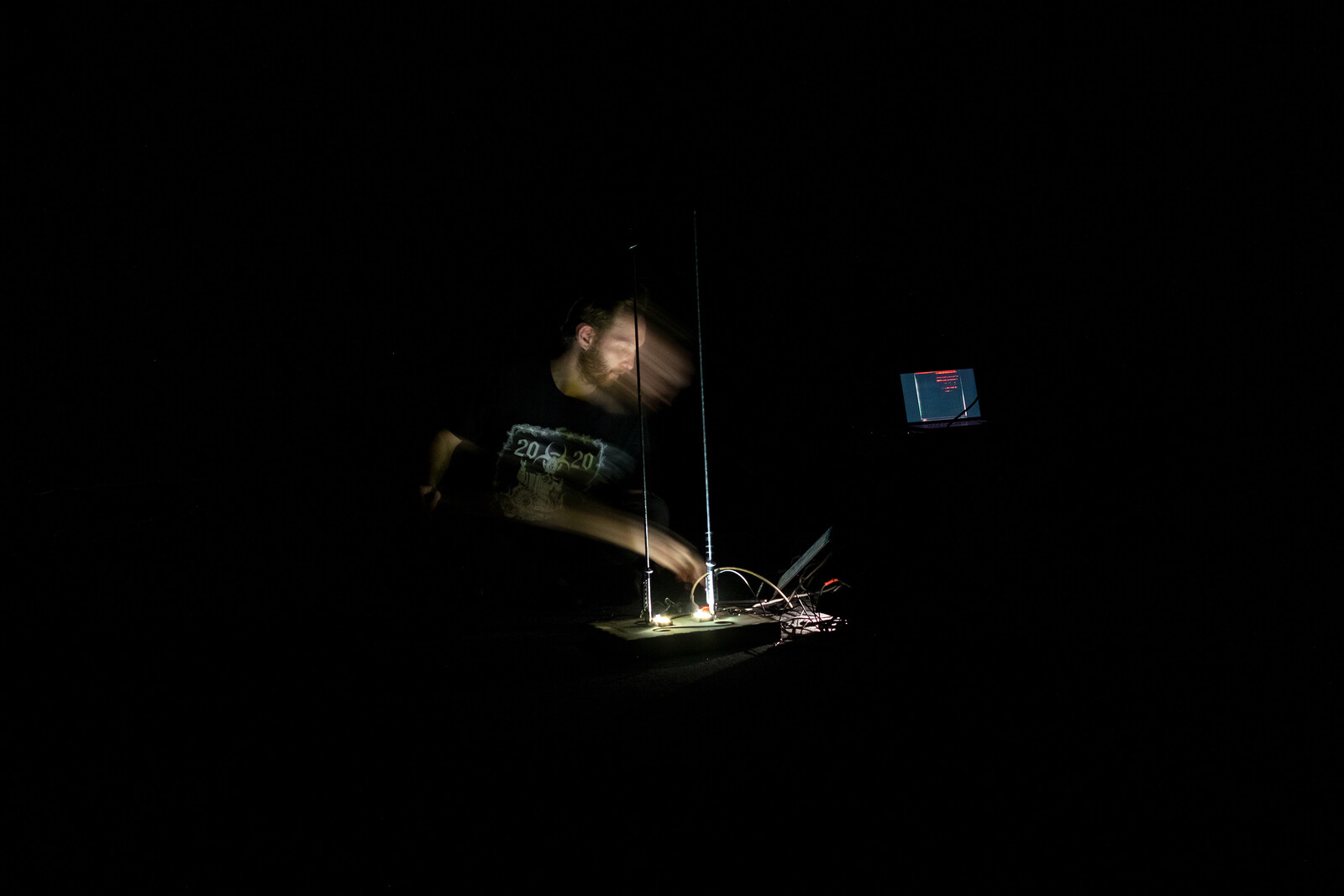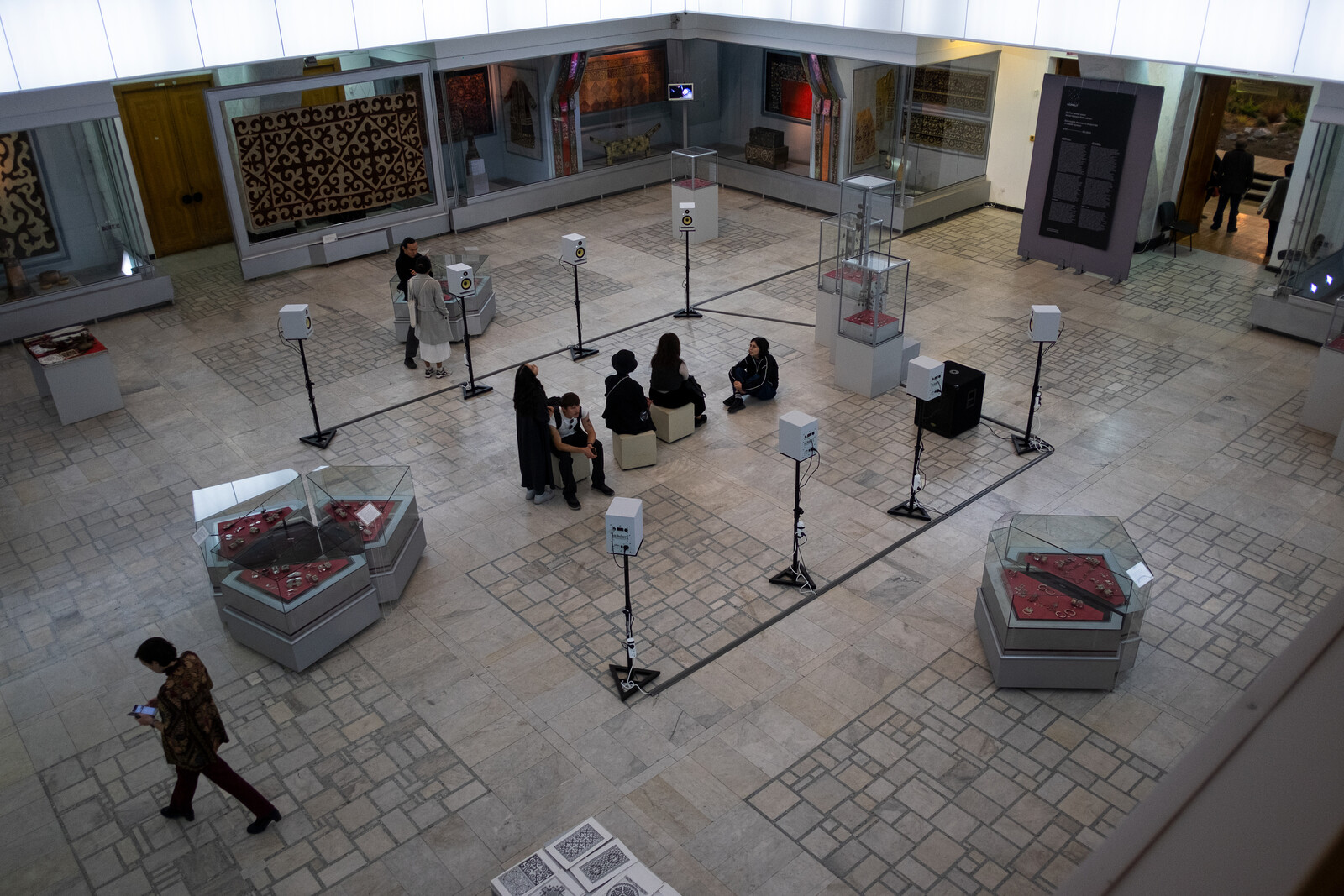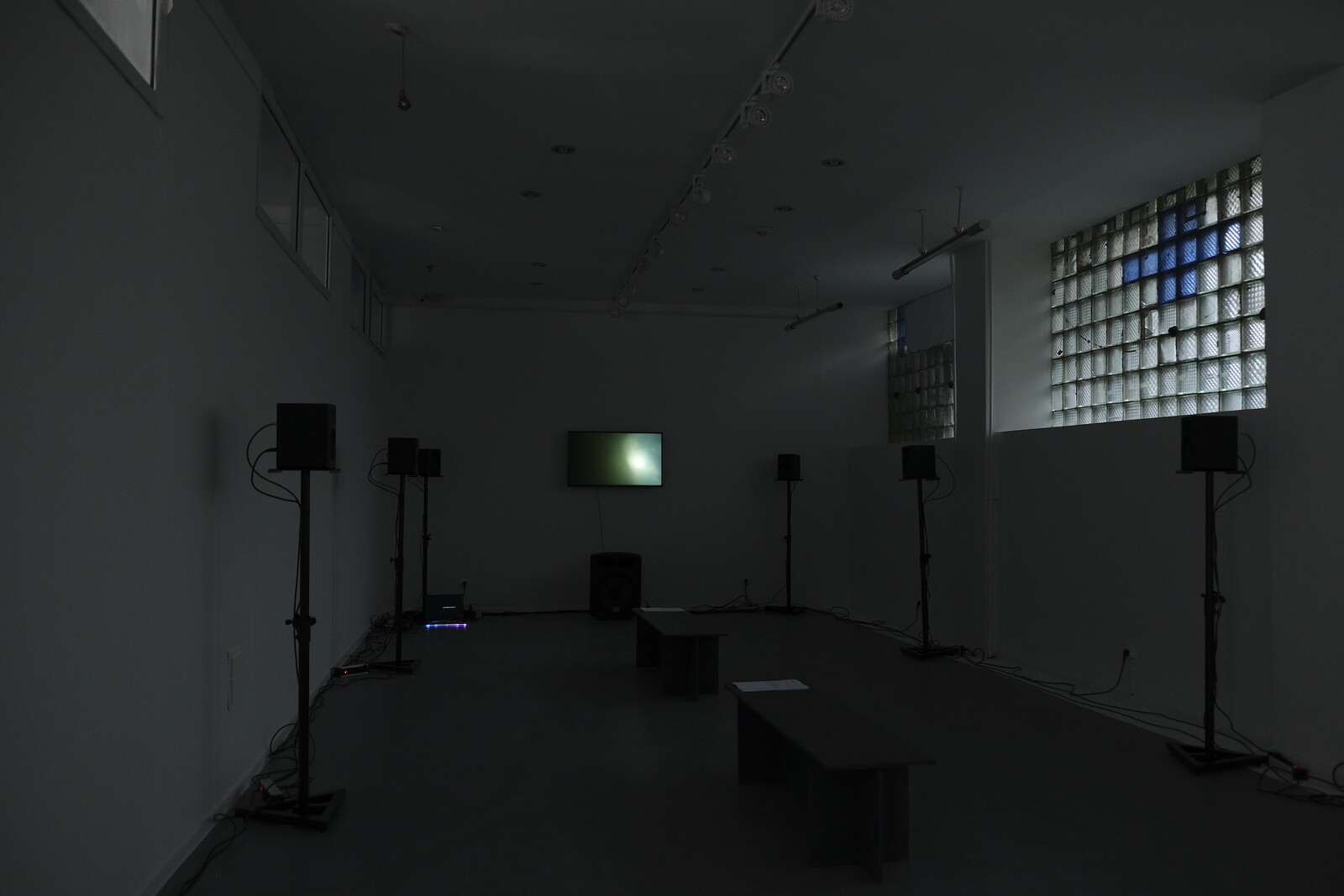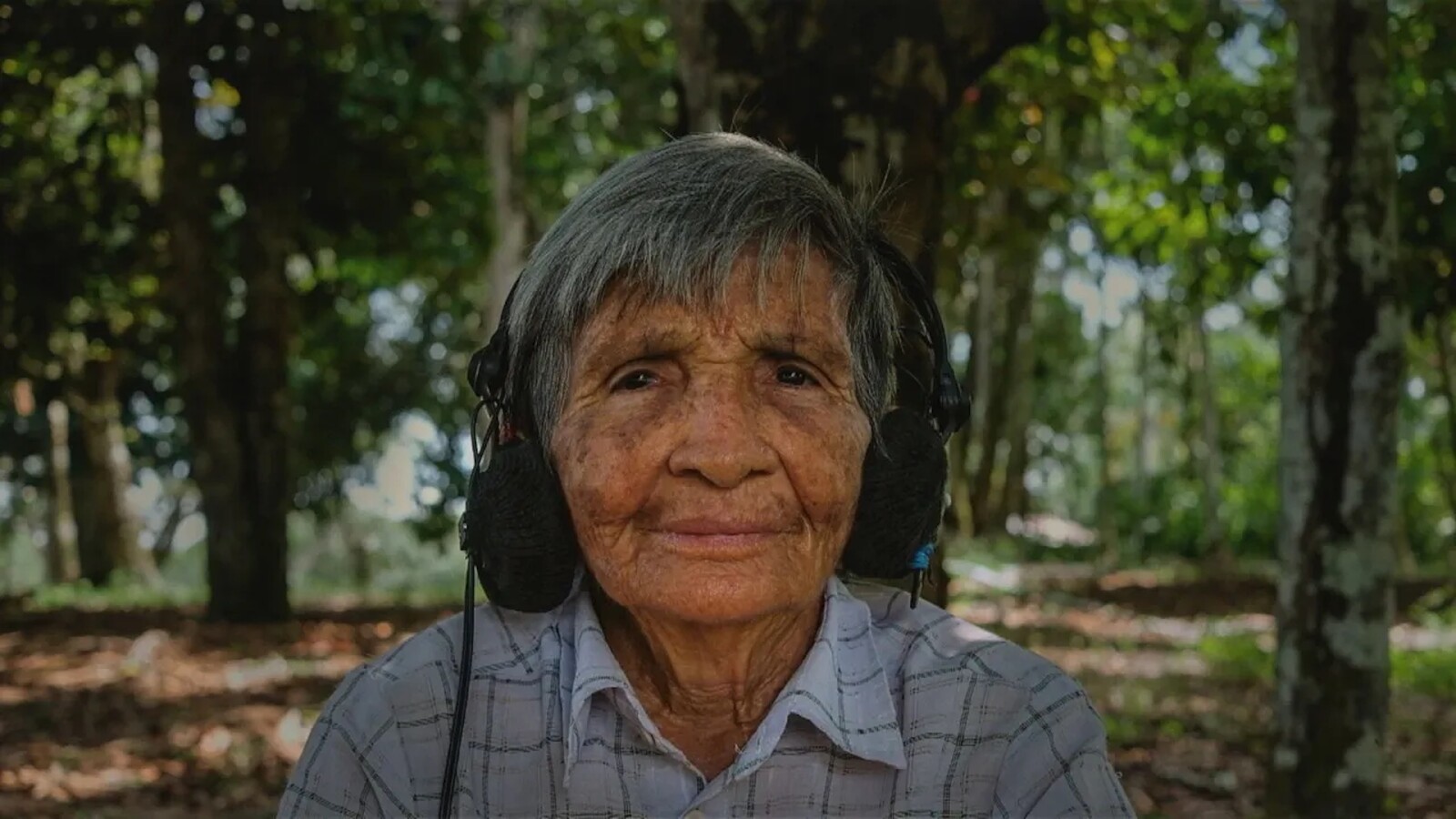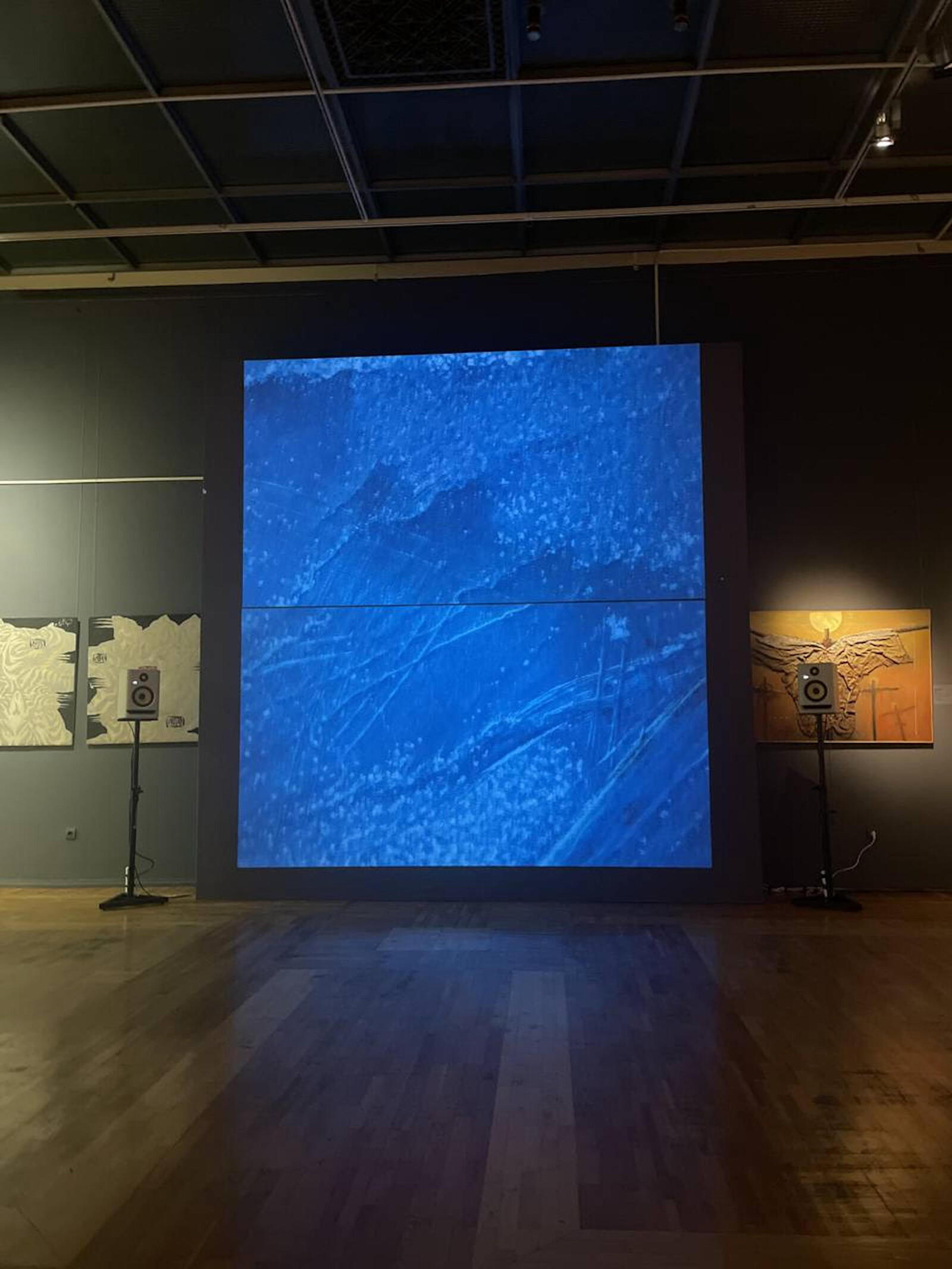October 6–November 6, 2022
The first biennale of its kind in Kazakhstan set out to combine sound art with a decolonial paradigm or, as curator Anvar Musrepov put it, “to find a correlation between experimental sound and the local culture, which is more audial than visual.” It fulfilled this mission through a convergence of the new posthuman ontologies being manifested in sound art with neo-traditional trends in decolonial thinking, in particular shamanism and animism.
The symbol of this convergence is the mythological Turkic musician and shaman Korkut. According to legend, he created the kobyz, a bowed string instrument which in his hands was capable of imitating all possible sounds, and was later used by the baksy, or Turkic shamans. While Korkut played it, he was immortal. Although he eventually got tired, fell asleep, and died, he gained eternal life in the world of spirits and memory as the one who healed people through the power of art and music. As a core component of the national identity, a demiurgical healer, and the personification of radical avant-garde aspirations like the search for immortality, Korkut is a fitting figurehead for artistic speculations on shamanism, magic, and healing in the Kazakh context.
Two concerts became the central events of the biennale. At the Yhlas Museum of Folk Instruments, the DJ and sound-artist Kokonja, sitting like a shaman surrounded by luminous “magical” devices on a round stage, performed an improvised piece based on field recordings of wind made in locations including the steppe. In the same techno-shamanic style, qum.arna performed on a mobile phone using a prerecorded collaboration with Satkozy Mukhtar, a kobyz musician from contemporary music ensemble EEGERU. Following them, Hongshuo Fan staged his Conversation in the Cloud (2022) as a rivalry-battle-collaboration in which dombra performer Daulet Zhanshin and a neural network riffed off each other.
The second concert, “Music of Fulfillment 41,” was a sophisticated collaboration between EEGERU, techno queer club bULt working group, and artist ::vtol:: (Dmitry Morozov). During the performance, Sabina from bULt made a traditional nomad kumalak divination on the special board. An algorithm transformed these compositions into scores for musicians from EEGERU and bULt and the “prepared” noise of drones. It was described by the artists as “an attempt to discover what Reality is, by peering together at the meanings of random symbols and listening to the form the sound takes after them.”
At locations from the Botanical Garden to Almaty’s Central Exhibition Hall were five installations by Kokonja, Dariya Temirkhan, the2vvo, Felix Blume, and Saodat Ismailova. They elaborated on subjects ranging from field recordings the Zhayik river, the cosmic unity achieved through throat singing, the sounds of the mythological mother of the Amazonian rainforest, and the idea of Korkut as a cosmist. A special exhibition called “Sound Off,” curated by Vladislav Sludsky, was dedicated to the art collective Kyzyl Tractor and their DIY musical instruments. One of the characteristic actions of their leader Moldakul Narymbetov, who died in 2012, was the early 2000s composition “East-West,” for which a “prepared” piano was repurposed as a shamanic tambourine to represent the collision between hemispheres.
The third concert was a fourteenth edition of Prepared Surroundings (PS), the experimental sound art festival previously held in Russia. According to Musrepov, the festival was brought in as an example of a long-term community initiative to develop sound culture. This enabled the contribution of several artists and saw the addition of Dmitry Morozov, previously the organizer of PS, as a technical director of the biennale. In the context of the war in Ukraine, the biennale’s organizer Tselinny Center of Contemporary Culture has taken a position of selective collaboration with Russians who have relocated. This attitude seems congruent with its mission—decolonial aesthesis is about the appropriation of the colonizer’s language from inside, after all—and the relocation of PS symbolizes the transfer of the center of the post-Soviet world away from Russia. What’s more, this biennale is rooted not in the traditions of the international neo-avant-garde of the 1970s but in the postcolonial and decolonial theories that are shaping the world today.
